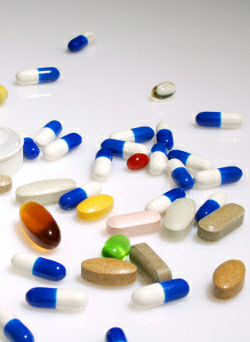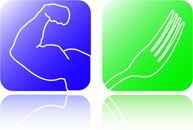Your diet customized with one click!
One
Click
Diet
One
Click
Diet

Copyright © 2010 OneClickDiet.com All right reserved.
No part of this web-
Disclaimer: The information provided on this site is for informational purposes only and is not a substitute for medical or nutritional advice, or treatment for any medical conditions. You should consult a healthcare professional or nutritionist before starting any diet, exercise or supplementation program, or if you have or suspect you might have a health problem. Actual results from nutritional plans and diets as well as exercise activities usually vary among individuals. The products and the claims made about specific products on or through this site have not been evaluated by the United States Food and Drug Administration (US F.D.A.) and are not intended to diagnose, treat, cure or prevent any disease. You should not use the information on this site for diagnosis or treatment of any health problem or for prescription of any medication or other treatment. Please view our full "Terms Of Use" for more information and the terms and conditions governing your use of this site.
Home
About
Contact us
Weight loss pills: hazardous or healthy?
article contributed by Johnny Peters
Brisbane, Australia
Weight loss pills are widely available and doctors will actually give out prescriptions for them if they feel your weight is a major health concern. They are mostly recommended for severely overweight and obese people with 30% body fat or more, and can help these individuals significantly reduce their fat percentage in less time. With some obese individuals it is important to cut a lot of weight because of health concerns such as high blood pressure, cardiovascular problems, diabetes, bad knees, etc. However, these weight loss pills work in conjunction with caloric restrictions and increased physical activity to produce good results, and people tend to assume that a pill will magically burn away hundreds of pounds while they lie in bed and watch TV.
Since a large percentage of the population is overweight or obese, and a lot of these overweight individuals also have other medical complications, the question is raised about the side effects and potential health risks of using weight loss pills.
We need to learn a little bit about the different types of weight loss drugs and how they work before we can understand their potential benefits and dangers.
The different types of weight loss pills
Weight loss pills can be divided into different categories based on their mechanism of action. There are basically three major categories:
? Appetite suppressants -
? Fat blockers -
? Fat burners -
Each type of weight loss pill uses a fundamentally different tactic to help you lose
weight -
The side-
Now, it is important to note that all drugs have potential side-
? Appetite suppressants -
? Fat blockers -
? Fat burners -
The greatest health risk comes from cheap pills found online, that promise fat burning effects but are actually made in less than adequate conditions, with no quality control to speak of. Most over the counter drugs are fairly safe and can have some minor side effects like anxiety, headaches or insomnia. As with any drug, taking weight loss pills in high quantities will increase the risk of more serious problems. Older fat burners contained ephedra combined with caffeine, but ephedra proved to cause great problems with heart rate for some people and products containing it were eventually pulled off the market due to over 100 deaths being caused by the use of these products.
Another concern is that people with weight problems often develop body dysmorphic
disorder -
Caffeine based supplements, natural ingredients, meal replacement and exercise
Although the benefits of most FDA approved prescription weight loss pills far outweigh
the negative side-
In order to lose weight effectively you will need to have a balanced, healthy diet
that keeps you in a caloric deficit; exercise on a regular basis; and the pills should
only be used to give you an added bonus on top of your other efforts. The pills have
their share of side-

